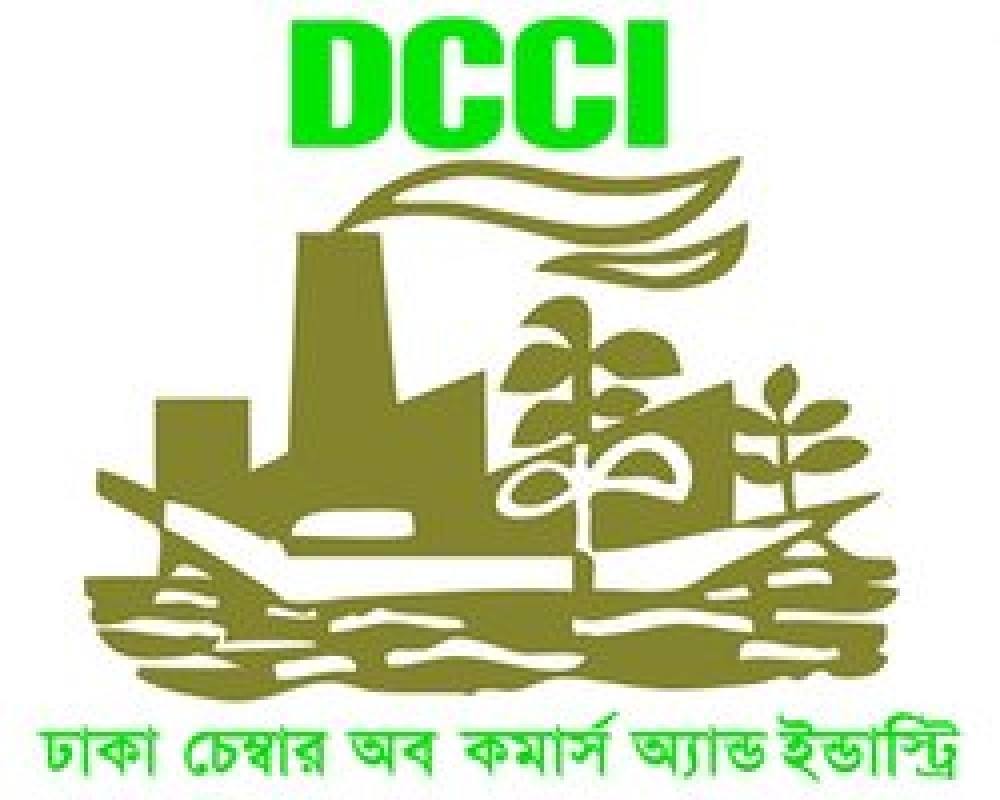News
Webinar on E-Learning

Popularizing effective e-learning system in a new normal post-pandemic situation needs infrastructure development including high speed internet bandwidth, quality and demand-driven online content and policy revision, speakers urged in a webinar organized by Dhaka Chamber of Commerce & Industry (DCCI) today on 12th September 2020. Education Minister Dr. Dipu Moni, MP joined the webinar as the chief guest. DCCI President Shams Mahmud moderated the webinar.
DCCI President Shams Mahmud in his welcome remarks said that according to an estimate of UNESCO 1.37 billion students worldwide have been deprived of education due to Covid 19. After a great disruption, in the new normal situation, possibility of e-learning system has been emerged a lot. But, in terms of infrastructure and internet affordability, we stand far behind in the south Asian region. To implement e-learning system in the country effectively, we need to develop infrastructure and quality online content. If we are able to create online educational content in Bengali as per the demand of industry, businesses and economy will get its diverse benefits in the long run, he said. Students’ participation in vocational education among the OECD countries is abour 45 percent whereas in Bangladesh it is less than 15 percent. In order to popularize e-learning system in Bangladesh, he recommended to include e-learning policy in the National Education Policy. He also recommended to develop necessary infrastructure including ensuring high speed internet across the country. VAT and surcharge on the usages of internet should be reduced, he told. The startups engaged in flourishing e-learning system should get special incentives and access to finance, Shams Mahmud also told. While creating online content, low bandwidth in Bangladesh should be in consideration, he added. Besides, government and private sector should work hand in hand to make vocational education more accessible to all.
Education Minister Dr. Dipu Moni, MP said in the wake of 4th industrial revolution, we normally shall have to go for e-learning in the next 4 to 5 years. Our resilience and adoptability level are high which play a catalytic role to face the challenges, she said. People of Bangladesh are very much technology-friendly and we have been able to spread online education facility across the country. Regarding Education Policy-2010 she said that government will soon revise it considering the new normal situation. In the post-Covid situation, online education will be transform into blended education, she added. She also said that in the long run people will get help of online education for their re-skilling and up-skilling. For that we need to forecast and project the need of next 20-30 years. We have seen a paradigm shift in total education system and online education and online degree are now the need of time. Moreover, we need to focus on research and innovation in the university level, she added. She also said that 17% students are being enrolled in vocational education now which is growing day by day.
Professor Osama Khan, Pro-Vice Chancellor, University of Surrey, UK presented the keynote paper. He said that e-learning is a sort of distance learning. For establishing e-learning system we need access to resource first. He also urged for electronic library, high quality books, virtual lab resources and availability of journals. For it technologically enhanced social learning environment needed. He also suggested for national policy development and resource allocation as part of industrial strategy and industry partnership for workforce development. University Grants Commission should develop framework aligned with industrial strategy, he added.
Prof. Dr. Harun-or-Rashid, Vice Chancellor, National University Bangladesh said that the pandemic is a wake-up call for us to think about e-learning system. There are 260 colleges under National University of Bangladesh, he informed. Online education system can accommodate more students in a blended teaching system. In the meantime, National University selected 1500 teachers out of 60,000 to provide 17500 lectures online. He also emphasized on reconstructing education system and lessons. He also added that National University has recently appointed a Director of e-learning. ICT will get priority as well as Bachelor of Honours in Tourism and Hospitality Management will soon commence in 9 colleges initially.
Dr. Md. Morad Hossain Mollah, Chairman, Bangladesh Technical Education Board said that we need to create industry demand driven curriculum. He also said that after Covid disappears, we need to work out how we can continue e-learning.
Prof. Dr. Carmen Z. Lamagna, Vice Chancellor, American International University of Bangladesh said that logistically private universities are well capable of conducting e-learning. She stressed on more blended and hybrid learning system as well as long-term policy planning.
Prof. Dr. Khawza Iftekhar Uddin Ahmed, Professor, United International University said interaction in e-learning is the key element. Through blended learning system teacher can play the role of facilitator but teachers also need proper training. He suggested to modify the Education policy-2010 incorporating e-learning guidelines and policies as the need of time.
Dr. Mohammad Istiaq Azim, Professor, North South University said that education system is changing day by day and we need to cope up with this change. We can’t deny digital platform any more. He said in the long run there may not be any physical classroom. He also underscored the importance of having a long-term plan for the next 20-30 years. He emphasized on need-based analysis and development of new curriculum.
M Abu Horairah, Former Vice President, DCCI, Riyadh Hossain, Former Vice President, DCCI also spoke on the occasion.
DCCI Senior Vice President N K A Mobin, FCA, FCS gave vote of thanks.
Published on: 2020-09-12
